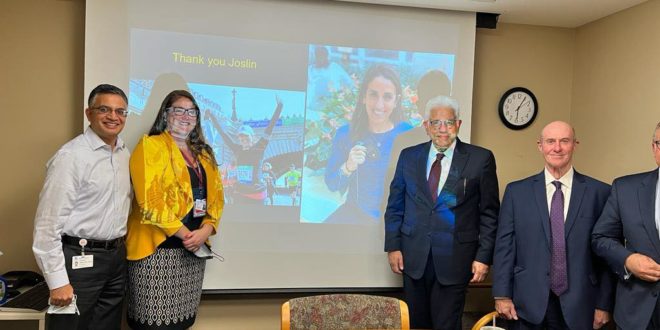In a successful visit new d. Hossam Badrawi has signed a work and partnership agreement with the Joslin Center for Diabetes Research and Treatment at Harvard University, which is the largest in the world, to start, with its partners, a project to establish a similar center in Egypt.
Dahsam and Dr. Osama Hamdi (sons of Mansoura and dream partners) are close to achieving something wonderful for Egypt and are working inspired by the expertise of Dr. Osama Hamdi over the years at Harvard University, and Dalia Badrawi’s model in the ability to deal and adapt to illness, which has become a model for willpower and perseverance, and with the vision of Dr. Badrawi in implementing policies and dreams throughout his history.
Dr. said. Hossam in his introduction to the management of the Joslin Center “We do not seek to establish the current model of Joslin or over the years, we seek to be partners in the future of science, not its past. We strive to be the center for Egypt, the Middle East and Africa, and we deal with future data and mechanisms.”
The feasibility studies, financial and academic, have been completed, the participation of the financing institutions continues, and the project is at the beginning of the start of implementation, God willing.
For more pictures
Dahsam and Dr. Osama Hamdi (sons of Mansoura and dream partners) are close to achieving something wonderful for Egypt and are working inspired by the expertise of Dr. Osama Hamdi over the years at Harvard University, and Dalia Badrawi’s model in the ability to deal and adapt to illness, which has become a model for willpower and perseverance, and with the vision of Dr. Badrawi in implementing policies and dreams throughout his history.
Dr. said. Hossam in his introduction to the management of the Joslin Center “We do not seek to establish the current model of Joslin or over the years, we seek to be partners in the future of science, not its past. We strive to be the center for Egypt, the Middle East and Africa, and we deal with future data and mechanisms.”
The feasibility studies, financial and academic, have been completed, the participation of the financing institutions continues, and the project is at the beginning of the start of implementation, God willing.
For more pictures
https://www.facebook.com/hossambadrawi/posts/434927404664344
 Dr. Hossam Badrawi Official Website
Dr. Hossam Badrawi Official Website


